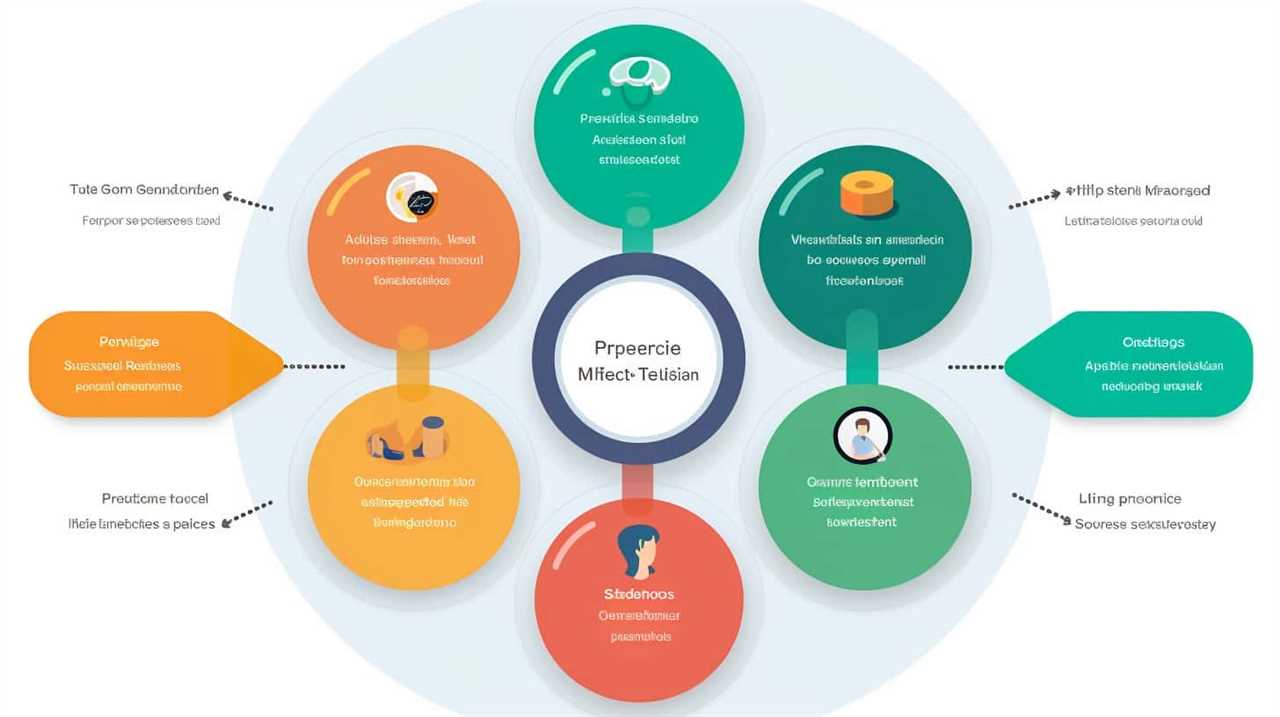We recognize mastering SEO is not straightforward, but we’re here to help.
In this article, we’ll explore six non-negotiable practices that will give your website the SEO clout it deserves.
- High-quality content: Creating valuable and relevant content is vital for SEO success. Focus on providing informative articles, engaging blog posts, and useful resources that will attract and retain visitors.
- Strategic keyword optimization: Conduct thorough keyword research to identify the terms and phrases your target audience is searching for. Incorporate these keywords naturally into your content to improve search engine rankings.
- Effective on-page techniques: Optimize your website’s meta tags, titles, headers, and URLs to make it easier for search engines to understand and index your pages. Pay attention to on-page elements such as image alt tags, internal linking, and mobile optimization.
- Strong backlinks: Building a network of high-quality backlinks from reputable websites is crucial for SEO. Seek opportunities for guest blogging, collaborate with influencers, and ensure your content is shareable to attract backlinks.
- Consistent technical audits: Regularly audit your website for technical issues such as broken links, slow loading times, duplicate content, or crawl errors. Fixing these issues will improve user experience and enhance search engine visibility.
- Utilizing social media: Engage with your audience on social media platforms to increase brand visibility and drive traffic to your website. Share your content, encourage social sharing, and interact with followers to boost your online presence.
With these six practices, you’ll have the tools to establish your authority in the online world.
Get ready to take your SEO game to the next level. Let’s dive in!

Key Takeaways
- Building a network of high-quality backlinks from reputable websites to establish authority and credibility in SEO.
- Regularly auditing the website for technical issues and fixing them promptly to enhance search engine visibility and user experience.
- Utilizing social media to generate social signals, increase online visibility, and drive traffic to the website.
- Creating high-quality and optimized content, incorporating relevant keywords, headings, and links, to improve search engine visibility and user engagement.
High-Quality Content
One of the key components of building authority in SEO is creating high-quality content that engages and informs our audience. User experience plays a crucial role in determining the success of our content.
To optimize user experience, we must ensure that our content is relevant, well-organized, and easy to navigate. By providing valuable and insightful information, we can establish ourselves as an authoritative source in our industry.
Additionally, content optimization is essential for improving our search engine rankings. This involves strategically incorporating keywords, optimizing meta tags, and ensuring proper formatting and readability.
Through meticulous analysis and continuous refinement, we can create high-quality content that not only resonates with our audience but also boosts our SEO efforts. The combination of user experience and content optimization is a powerful tool in building our authority and achieving long-term success.

Strategic Keyword Optimization
To achieve consistent SEO clout, we prioritize strategic keyword optimization.
This involves conducting competitive analysis to identify the keywords that our target audience is using and the ones our competitors are ranking for. By understanding the keyword landscape, we can uncover opportunities to target long tail keywords, which are more specific and have less competition.
Long tail keywords allow us to capture highly relevant traffic and increase our chances of ranking higher in search engine results.
To optimize our website for these keywords, we strategically incorporate them into our content, meta tags, headings, and URLs. By doing so, we improve our website’s visibility and relevance to search engines.

Now, let’s delve into the subsequent section about effective on-page SEO techniques.
Effective On-Page SEO Techniques
We implement on-page SEO techniques to optimize our website and improve its visibility and relevance to search engines. Effective on-page SEO techniques are crucial for enhancing user experience optimization and ensuring a mobile-friendly design.
Here are two essential strategies:
- Keyword Placement:
- Incorporate relevant keywords strategically in the title tag, meta description, headings, and content.
- Optimize the URL structure to include keywords for better search engine understanding.
- Content Optimization:
- Create high-quality, engaging content that satisfies user intent and provides valuable information.
- Use proper formatting, such as bullet points, subheadings, and bold text, to enhance readability and user experience.
Building Strong Backlinks
When it comes to building strong backlinks, we must prioritize quality over quantity.

Instead of focusing on obtaining a large number of links, it’s crucial to focus on acquiring natural, high-quality links.
These links are more likely to come from reputable and authoritative websites, which can significantly boost our SEO clout.
Quality Over Quantity
Building strong backlinks requires a focus on quality rather than quantity. When it comes to backlinks, it isn’t enough to simply accumulate a large number of them. The key is to obtain high-quality backlinks that are relevant to your content and provide value to users.
Here are two important aspects to consider:

- Content Relevance: Ensure that the websites linking to your site have content that’s relevant to your own. This helps to establish the authority and credibility of your website in the eyes of search engines.
- User Experience: Backlinks from websites with a good user experience can significantly enhance your own website’s credibility. This includes factors such as site speed, mobile-friendliness, and overall usability.
Natural Link Building
To continue the discussion on building strong backlinks, let’s explore the concept of natural link building and its importance in establishing website authority.
Natural link building refers to the process of acquiring backlinks in a way that appears organic and genuine. It involves practices such as organic outreach and link earning, where links are obtained through genuine relationships, high-quality content, and valuable resources.
Natural link building is crucial for establishing website authority because search engines consider backlinks as a vote of confidence from other reputable websites. By obtaining high-quality backlinks naturally, a website can enhance its credibility and visibility in search engine results.
It’s important to focus on building strong backlinks through natural means rather than resorting to manipulative tactics, as search engines are becoming increasingly adept at detecting and penalizing such practices.

Consistent Technical SEO Audits
Our team conducts regular technical SEO audits to ensure the consistent optimization of our website’s performance and visibility. These audits are crucial for maintaining our competitive edge in the online marketplace.
Here are two key aspects we focus on during our audits:
- Competitor analysis: We analyze our competitors’ websites to identify areas where they’re outperforming us in terms of SEO. By understanding their strategies, we can make informed decisions on how to improve our own website’s optimization.
- Website speed optimization: We recognize the importance of having a fast-loading website. Slow page load times can negatively impact user experience and result in higher bounce rates. Through our technical SEO audits, we identify any issues that may be slowing down our website and implement solutions to improve its speed.
Utilizing Social Media for SEO Advantage
In harnessing the power of social media, we capitalize on its potential for enhancing our SEO advantage. Social media platforms provide an excellent opportunity to generate social signals, which are indicators of a website’s popularity and relevance.
By actively engaging with our audience on these platforms, we can increase our online visibility and drive traffic to our website. Additionally, social media allows us to build and manage our online reputation.

Through strategic content creation and engagement, we can shape the perception of our brand and establish ourselves as a trusted authority in our industry. It’s crucial to monitor and respond to feedback and reviews, as they play a significant role in shaping our online reputation.
Frequently Asked Questions
How Can I Ensure My Content Is Considered High-Quality?
To ensure our content is considered high-quality, we evaluate it through a rigorous process of content evaluation and quality assurance. This strategic and analytical approach allows us to meet the demands of our audience who desires mastery.
What Are the Best Strategies for Keyword Optimization?
We’ve found that the best strategies for keyword optimization involve thorough keyword research and competitor analysis. By understanding what keywords your competitors are targeting, you can better optimize your content for maximum SEO impact.
How Can I Implement Effective On-Page SEO Techniques?
To implement effective on-page SEO techniques, we focus on optimizing content, meta tags, headings, and URLs. We also consider user experience, mobile-friendliness, and page load speed. These factors influence SEO ranking and help improve organic visibility.

What Are the Key Steps to Building Strong Backlinks?
To build strong backlinks, we focus on building relationships through targeted outreach campaigns. By identifying relevant websites and reaching out to them, we can establish credibility and gain valuable links for SEO success.
How Often Should I Conduct Technical SEO Audits for Consistent Performance?
We should conduct technical SEO audits regularly to ensure consistent performance. The frequency depends on factors like website size and complexity. It’s crucial for maintaining a strong online presence and optimizing our website for search engines.
Conclusion
In conclusion, implementing these six non-negotiable practices for consistent SEO clout is essential for digital success.
By focusing on high-quality content, strategic keyword optimization, effective on-page SEO techniques, building strong backlinks, consistent technical SEO audits, and utilizing social media for SEO advantage, businesses can enhance their online visibility and increase organic traffic.

Just like a well-oiled machine, these practices work together harmoniously to drive sustainable growth and ensure long-term success in the ever-evolving world of digital marketing.










